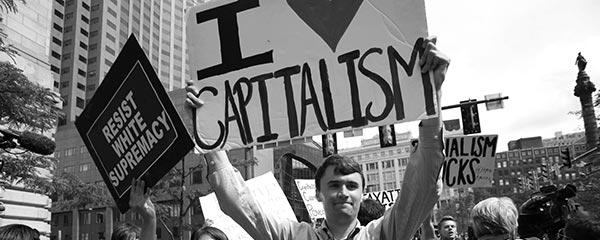Story Highlights
- ║┌┴¤═° Economic Confidence Index at +29, best since July
- 35% satisfied with the way things are going in U.S.
- Mentions of government as most important problem remain high
WASHINGTON, D.C. -- Americans' evaluations of the U.S. economy improved in November, with ║┌┴¤═°'s Economic Confidence Index registering +29, the best reading since July.

These results are based on a Nov. 1-14 ║┌┴¤═° poll. A better-than-expected jobs report this month may have eased concerns about a possible recession and helped spur growth in stock values.
Currently, 55% of Americans rate economic conditions as either "excellent" or "good," while only 9% say they are "poor." Not since immediately after the Sept. 11, 2001, terrorist attacks have "poor" ratings of the economy been in single digits.
Also, 52% of U.S. adults believe the economy is getting better, while 41% say it is getting worse. In September and October, amid predictions of a looming recession, Americans were evenly divided as to the economy's direction.
║┌┴¤═°'s Economic Confidence Index summarizes Americans' ratings of current economic conditions and perceptions of whether the economy is getting better or worse. It has increased by 12 points since September, when roughly half thought a recession was likely to occur.
The current index value is now just four points below the +33 registered in October 2018, the highest reading since the late 1990s/early 2000s economic boom. The highest ║┌┴¤═° has ever measured was +56 in January 2000.
Americans' assessments of the job market specifically were unchanged in November, with 65% saying it is now "a good time to find a quality job." Recent ratings of the job market have ranked among the best in ║┌┴¤═°'s trend on this question, which dates to 2001.
U.S. Satisfaction Recovers After October Dip
Americans' satisfaction with the way things are going in the United States also improved in November, though this mainly reflects a recovery after a drop in October. Currently, 35% are satisfied, up from 28% in October but largely similar to the March through September readings.

The changes in satisfaction are mostly driven by a decline in Republican positivity in October, to 53%, and a reversion to higher levels this month. But the 66% of Republicans currently satisfied is higher than ║┌┴¤═° has measured at any point this year. Independents are slightly more likely to be satisfied now (32%) than they were in September (28%) and October (26%). Democrats' satisfaction has been steady near 10% all year and is currently 9%.
Satisfaction has failed to reach 40% in more than a decade, last doing so in July 2005, early in George W. Bush's second term. It has reached as high as 37% during Barack Obama's presidency (in November 2016) and 38% during Donald Trump's presidency (in June and October 2018).
Government Remains Top Problem
Americans' chief complaint about the nation continues to be the government, with 33% mentioning it in response to an open-ended question asking them to name the most important problem facing the country. That percentage is just below the high point in ║┌┴¤═°'s trend, 35% in the wake of the government shutdown earlier this year, and is unchanged from last month's 34%.
Republicans (39%) and Democrats (37%) are equally likely to name the government as the top problem, with 25% of independents also doing so. But Republicans and Democrats have very different complaints about the government. The vast majority of Democrats who name the government as the most important problem mention "President Trump" specifically. In contrast, Republicans see the attempt to impeach Trump, or general issues with "Congress" or "Democrats," as the biggest concern right now.
After the government, the problems mentioned most commonly by Americans are immigration (11%), healthcare (6%), race relations or racism (5%), unifying the country (5%), the economy in general terms (4%), and poverty, hunger or homelessness (4%).
Congressional Approval Holds Steady
In contrast to what was seen with satisfaction, ratings of Congress improved in October, and those gains were maintained in November. Americans' approval of Congress remains low, however, at 24%.

The October uptick in ratings of Congress was propelled by Democrats, whose approval climbed from 19% to 34% and is 31% now. Twenty-five percent of independents and 17% of Republicans approve of Congress.
Bottom Line
Americans are more confident in the economy now than in recent months, and their satisfaction levels have been restored after dipping in October. More than any other issue, they view the government as the most important problem facing the country, with Democrats and Republicans largely seeing the other party's elected officials as the problem. These attitudes point toward another contentious presidential election next year, with Republicans hoping that a continued strong economy will help persuade Americans to elect Trump to a second term.
Learn more about public opinion metrics that matter for the 2020 presidential election at ║┌┴¤═°'s 2020 Presidential Election Center.
View complete question responses and trends.
Learn more about how the works.




